“THANK YOU (FSRP) FOR CONSULTING TRADITIONAL AUTHORITIES”
-Paramount Chief Applauds FSRP's Stakeholder Engagement Process.
The Paramount Chief of Sômè Traditional Area in the Volta Region, Torgbiga Adama III has expressed appreciation to FSRP Ghana for their consultative approach to project implementation. “We are grateful to you for taking the decision to see the traditional authority to make an input into this. We are also grateful (to you) for considering us”. He expressed optimism that although the traditional consultation was only a beginning, he was hopeful that his area will be able to meet the required conditions. Torgbi Adama regretted however that most government agencies fail to chart this path: “This is what most (of our) government agencies are not doing - by ignoring (us) the traditional authorities...they go and plan and come and pour on us; ...and they fail; yet they refuse to learn from this. It will be good for government agencies to cultivate the habit of involving traditional authorities before they take a decision”. The cost of projects, he said, could be significantly reduced, if proper consultations are done.
Torgbiga Adama III made these remarks during a stakeholder engagement meeting with a team of officials led by FSRP, as part of a second round of Markets Assessment exercise - to ascertain their viability as centers for cross-border trade of agricultural produce in the West African sub-region. The first round took the team to the Fumbisi, Agogo, Denu and Abofour Markets.
This second round took the team to Eyinase, Ejura, Navrongo, Bolgatanga and Techiman, with a re-visit to Fumbisi and Denu to follow-up and gather more information on the scope of beneficiaries and traditional custody - respectively. Other Traditional Leaders in the Paramount Chief’s entourage were: Torgbi Ahane IV, Torgbi Hoda- Alagbah IV, Torgbi Gbadago VI, Awododa Dowefiaga, Torgbi Akpa IV.
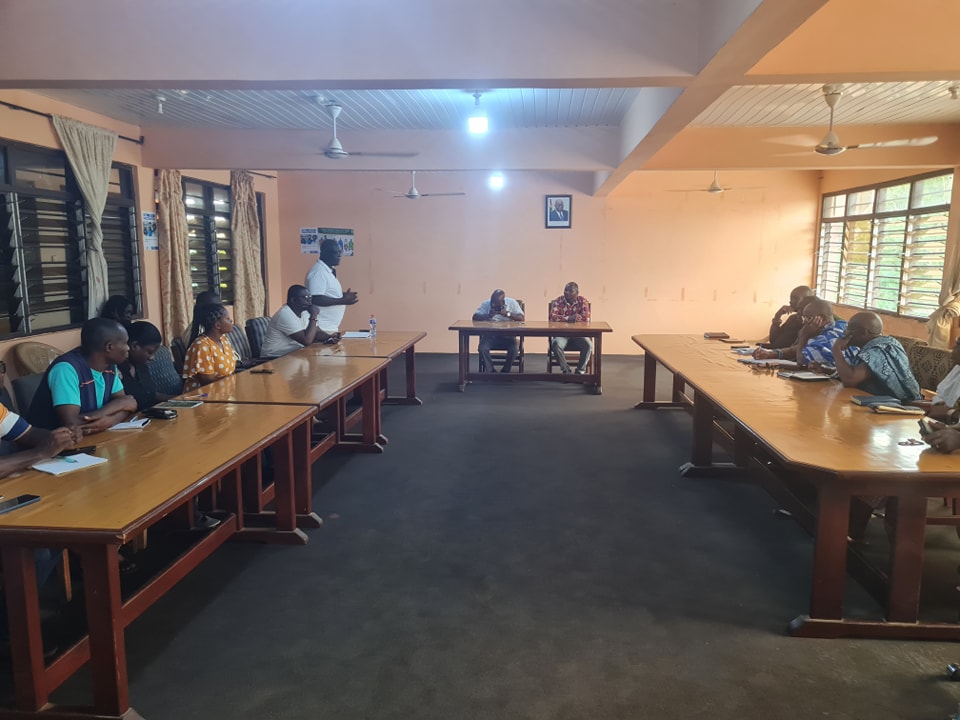
PRELIMINARY ASSESSMENTS
The assessment team, which was made up of senior representatives from regulatory and policy implementation institutions interacted with traders, District Assembly authorities and District Directors of Agriculture. For each of the markets, the assessment exercise evaluated: Viability for Regional Trade & Marketing; Bulk Trade in the FSRP value chain commodities (Rice, Maize, Soya and Broiler Poultry); Land Ownership, Market Infrastructure; Market Management; Security & Disaster Management arrangements; Food Handling, Food Safety & Quality Controls; and Welfare arrangements within the markets.
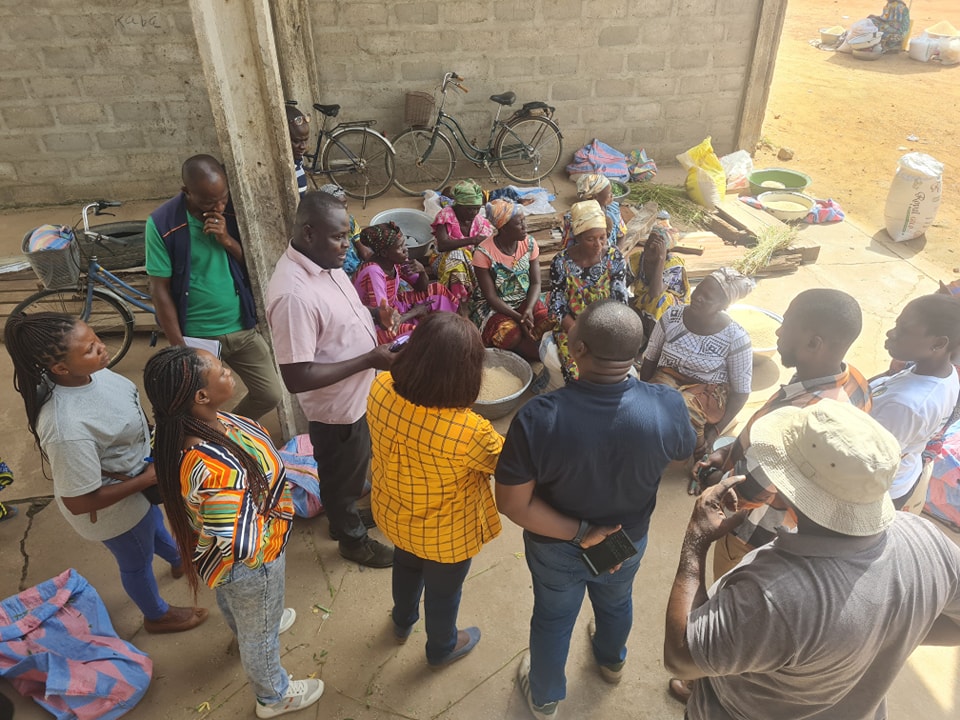
ONGOING PROCESS
FSRP’s Infrastructure Engineer, Bloomfield Crosby Attipoe explained that FSRP is very keen on the Ownership and Sustainability of the viability of project interventions long after the project has ended – hence the assessment team’s quest to consult custodians, at different stages of the assessment process. FSRP’s Agricultural Economist, Allswell Emmanuel Okai noted that a final decision on which markets to be chosen is yet to be made. “The findings collated from our rounds will be reported to the Management of FSRP and subjected to technical analysis, following which the best suited markets will be selected for refurbishment”, he emphasized.
One of FSRP’s Components (C3) is to promote Market Integration and Trade by expanding food trade in West Africa to enable an effective distribution of surplus produce to deficit regions and facilitate production and commercialization of agricultural inputs and technologies within and across national borders. It is also to facilitate trade across key corridors; and consolidate food reserve system by supporting the implementation of sound regional regulations and policies to strengthen the regional agricultural and food input and output markets.
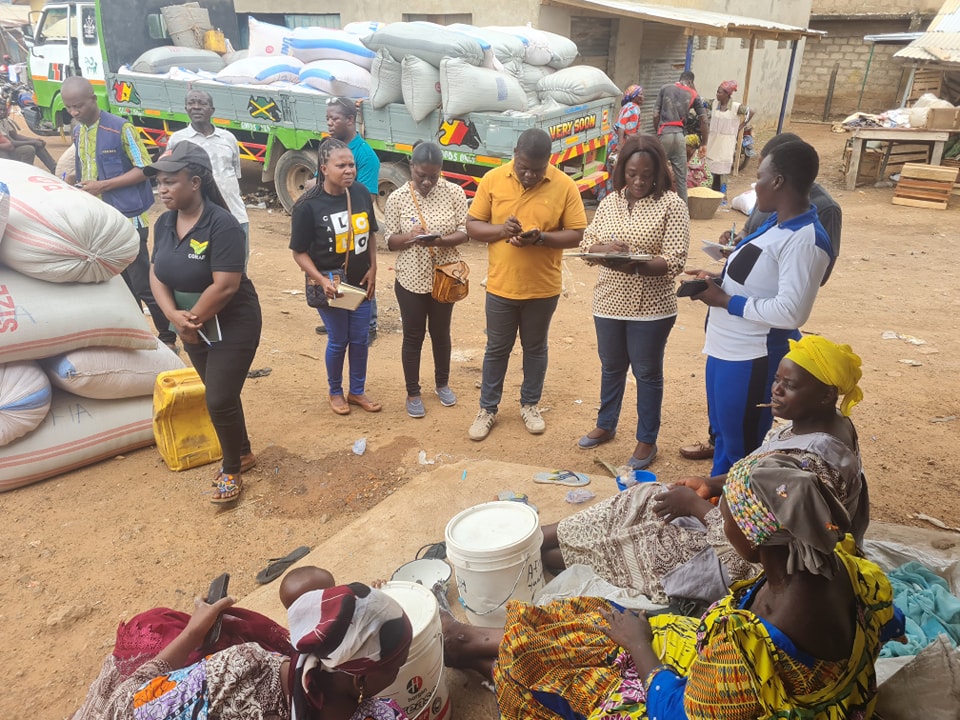
THE FSRP STAKEHOLDER ENGAGEMENT PROCESS
The FSRP Stakeholder Engagement Plan requires timely engagement with stakeholders throughout the project life cycle. Such engagements are to commence as early as possible in the project development process, in a timeframe that enables meaningful consultations with stakeholders on project design . The process involves informing stakeholders about proposed activity, obtaining views of immediate neighbours, obtaining information on existing and/or potential adjacent land use and obtaining historical local knowledge about the area (eg. Flooding, security, fire, etc). The nature, scope and frequency of stakeholder engagement is to be proportionate to the nature and scale of the project and its potential risks and impacts. Effective stakeholder engagement can improve the environmental and social sustainability of projects, enhance project acceptance, and make a significant contribution to successful project design and implementation. [See FSRP STAKEHOLDER ENGAGEMENTPLAN: https://www.fsrp.org.gh/resourceCenter]
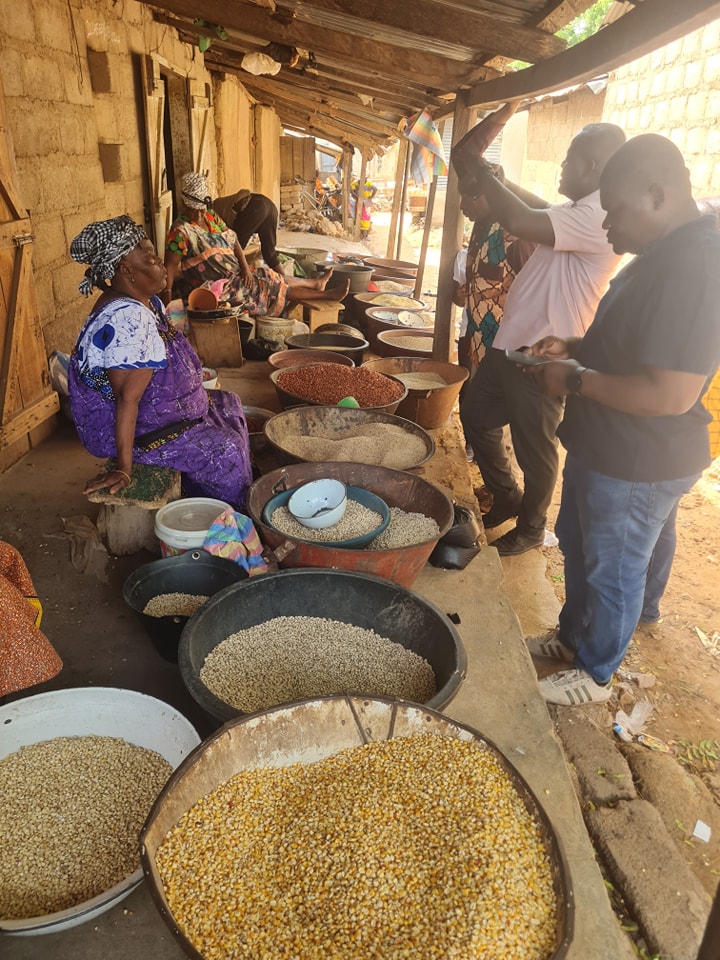
INSTITUTIONAL REPRESENTATION
The members of the team are: Allswell Okai (Agriculture Economist & Component 3 Lead, FSRP); Comfort Essumang (Principal Scientific Officer, GSA); Jennifer Quartey (Regulatory Officer, FDA), Peter Ketting (Dep. Director, MOFA-PPRSD); Eric Commey (Agric Engineer, MoFA-AESD); Ing. Bloomfield Crosby Attipoe (Infrastructure Engineer, FSRP); Nana Adu Nyarko Andorful (Social Risks Specialist, FSRP); Emelda Adii (Environmental Risks Specialist, FSRP); Margaret Davids Opoku Agyeman (Agribusiness Officer, FSRP); and E. Ankrah (Communications & Knowledge Management Specialist, FSRP).
ABOUT FSRP
The West Africa Food System Resilience Programme (FSRP) seeks to support key value chain activities to increase preparedness against food insecurity, build resilience of agri-food systems and harmonize agricultural markets in the West African sub region. Participating countries include Ghana, Togo, Burkina Faso, Mali, Niger, Chad, Sierra Leone, and Senegal. In Ghana, FSRP which is being implemented by the Ministry of Food & Agriculture, is focusing on the intensified production, marketing and consumption of wholesome Rice, Maize, Broiler Poultry, Soyabeans (for the poultry) and Tomatoes. To that end, the project seeks to construct or refurbish pivotal value chain facilities across the country, including veterinary-based laboratories, plant-based laboratories, a seed bank, inner valleys, irrigation schemes, border posts, warehouses and cross-border bulk trade markets. It is also supporting anchor poultry farmers with inputs and crop producers with climate smart seeds and fertilizers; promoting innovative and smart technologies (which are climate-smart and youth/gender-sensitive); conducting pest and diseases surveillance; and installing Automated Weather Stations for agric-focused location specific weather forecasts.
[Ketu South; June 2024]

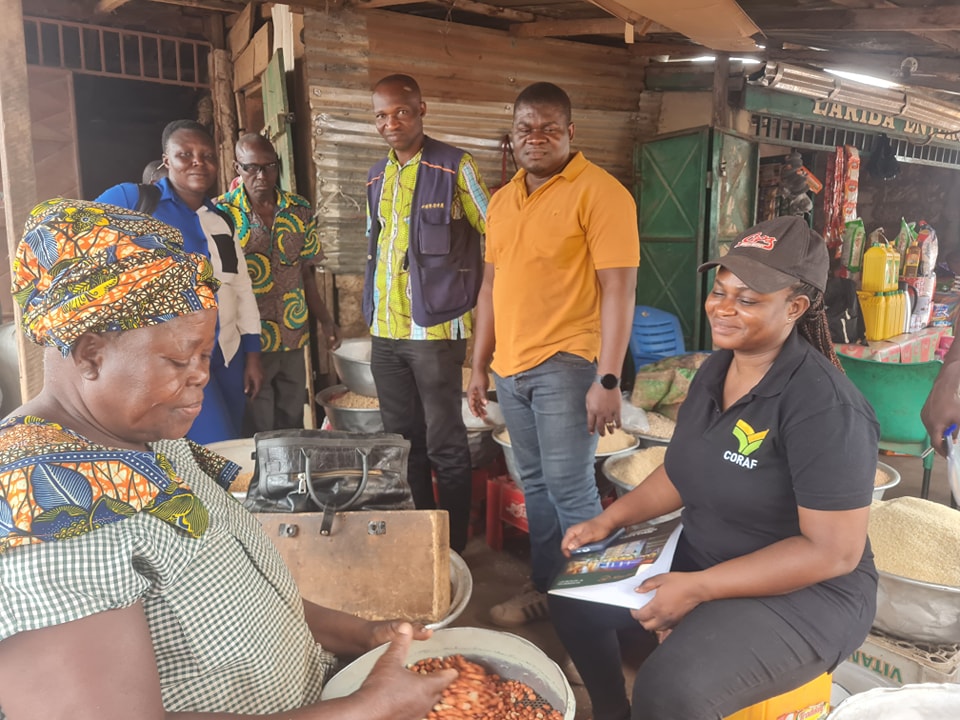
Leave a comment
Comments (0)
No comments yet. Be the first to comment!